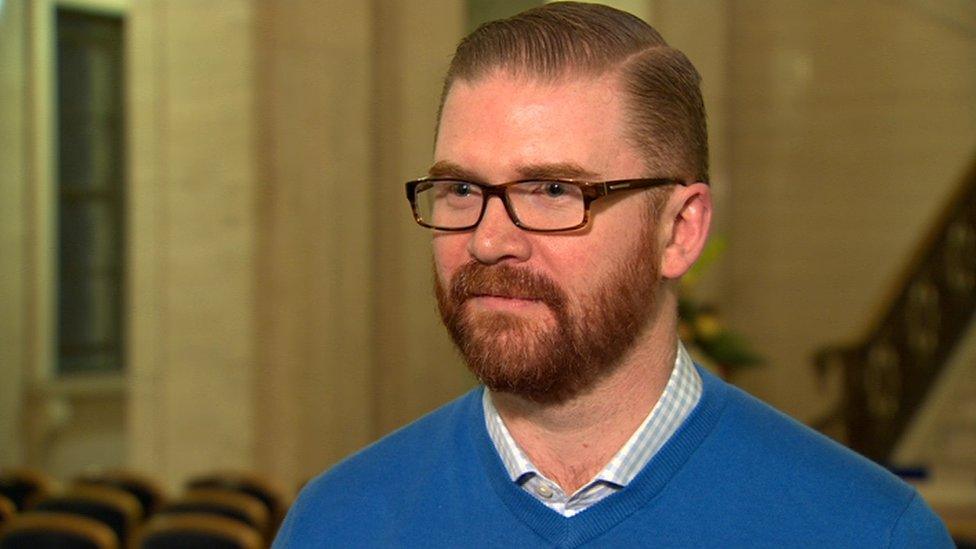Abortion: Midwives college writes to health minister over working group delay
- Published

Abortion is only permitted in Northern Ireland in limited circumstances
The Royal College of Midwives (RCM) has written to the health minister with concerns over a delay in establishing a working group on the issue of abortions in cases of fatal foetal abnormality.
The letter, from the college's Northern Ireland director, questions why it has yet to be approached.
Health Minister Simon Hamilton said in January he intended to set up a group.
He said it would make recommendations on how the issue of fatal foetal abnormality could be addressed.
The group, he said, would include leading clinicians and people with a legal background.
Risk
Unlike other parts of the UK, the Abortion Act 1967 does not extend to Northern Ireland.
A termination is only allowed in Northern Ireland if a woman's life is at risk or if there is a risk of permanent and serious damage to her mental or physical health.
Breedagh Hughes is "surprised" the RCM has not been contacted about the working group
In the letter, seen by the BBC, college director Breedagh Hughes requests details on the membership, terms of reference and work plan for the group.
She goes on to say she has spoken to Northern Ireland's chief medical officer, who was unable to provide her with any information.
Ms Hughes adds in the letter she is "somewhat surprised that the RCM has not been contacted to contribute to the work".
She said she had been left "very frustrated" by the apparent delay.
"I think it is crucial that all of those who are caring for women in this situation contribute to the work of this group," she said.
"I think it is even more important that there should be a user representative on this group because at the end of the day, this is to some extent about health care professionals providing care for women but mostly this is about women, and women are every bit as much in the dark about when they might be entitled to a lawful termination of pregnancy in Northern Ireland and when they may not."
Passionate
There has been pressure from health professionals, charities and members of the public to try to resolve the issue.
A fatal foetal abnormality diagnosis means doctors believe an unborn child has a terminal condition and will die in the womb or shortly after birth.

Simon Hamilton says he intends the working group to report within six months
A proposal to allow abortion in such cases was defeated in the Northern Ireland Assembly by 59 votes to 40.
The result followed a passionate debate at Stormont after some MLAs proposed the law change be introduced by way of an amendment to the Justice Bill.
Sensitive
Northern Ireland's Royal College of Obstetricians and Gynaecologists has said it is also waiting on contact from the Department of Health.
Mr Hamilton said after briefing the Northern Ireland Executive he plans to give the matter further consideration.
"Fatal foetal abnormality has proved a sensitive and controversial matter which requires careful and measured consideration," he said.
"The working group will consult with interested parties, including those who have been affected.
"I remain fully determined to meet the commitment for the working group to report within six months."
The Justice Minister, David Ford, said: "Two and a half years ago, I asked the then health minister to have a joint approach to a consultation between the two departments to deal with issues of abortion because there were matters which fell to him and matters which fell to me.
"We're now on the third DUP health minister and we still haven't got to any agreement of doing joined working like we're supposed to do."
- Published11 February 2016

- Published16 December 2015

- Published30 November 2015
